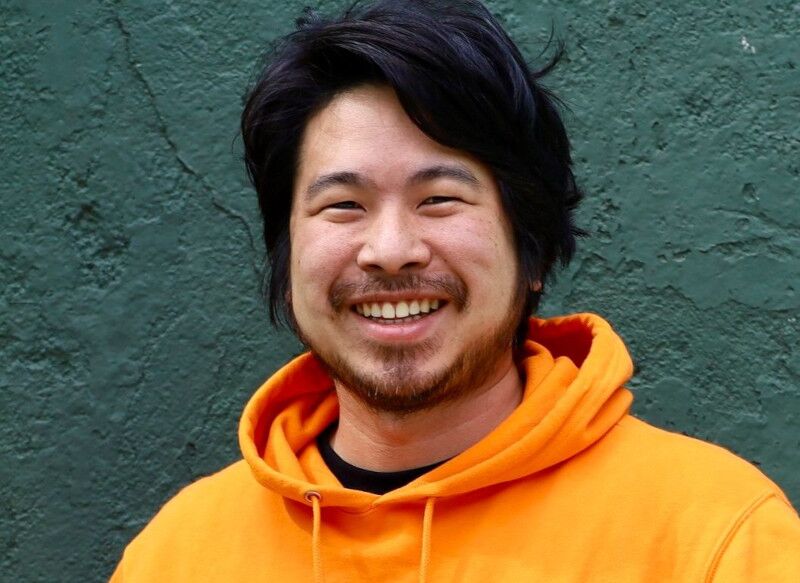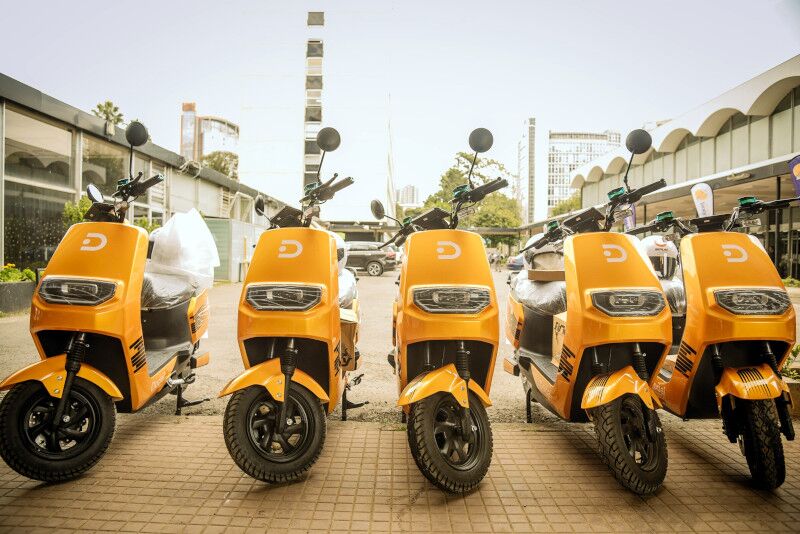
Yuma Sasaki
Interview with Yuma Sasaki
CEO AND FOUNDER, DODAI
Lives in: Addis Ababa, Ethiopia
In 2021, Japanese entrepreneur Yuma Sasaki moved to Ethiopia to establish Dodai, an electric motorcycle company assembling its bikes locally in Addis Ababa. Jaco Maritz spoke with Sasaki to learn about his journey as an entrepreneur.
Topics discussed during the interview include:
- How a Japanese-born entrepreneur ended up launching a venture in Africa
- Why he chose Ethiopia, and why he believes the biggest opportunities lie in tough markets
- The two business opportunities he initially considered pursuing in Ethiopia
- His strategies for finding and hiring the right talent
- Why selling directly to delivery drivers proved challenging
- Securing financing for his startup
- The specific obstacles of operating in Ethiopia
- Japanese investors’ perception of Africa
- Growth vs profitability
Watch the full interview below:
Interview summary
Yuma Sasaki’s drive for new experiences has led him down unique paths. In his younger years, he once travelled to Paris with no money – only a round-trip ticket – to understand what it was like to live as a homeless person and rely on begging.
“I like to be in a new environment and in a kind of chaotic environment – something new or unexpected things happen every day,” he says.
This sense of adventure also fueled his interest to work in Africa. After completing his degree at the University of Tokyo, he joined a Japanese oil and gas company, hoping to be posted to an African oil-producing country. However, when the company never sent him to Africa, he decided to go on his own terms. He completed an MBA in France, believing it would help him stand out in the African job market. He then joined an off-grid solar startup in Ghana as an unpaid intern. He spent two years with the company, also working part of that time in Abidjan, Côte d’Ivoire.
In 2018, Sasaki returned to Japan, keeping a promise to his then-girlfriend, now wife. He joined Uber, where he led the company’s commercial department for a year and a half. Following Uber, he moved to another electric transport startup in Japan called Luup, which reached a $300 million valuation in just three years.
Yet, he always wanted to return to Africa. “While I lived and worked in Japan with my wife, I had a wish that one day I’ll come back to Africa when I find an opportunity. So I was always thinking about which country, which sector, to go back to Africa.”
In 2021, he made that return, first to Djibouti, and later to Ethiopia. Sasaki explains that he chose Ethiopia partly due to its large population of about 130 million people, which he saw as a significant market for various products and services.
Another reason he picked Ethiopia was its reputation as a challenging place to do business, which he believed would offer a first-mover advantage. “I believe that when there’s big potential and everybody says that it’s too difficult or it’s not popular as a market – there’s real big potential,” he explains. “When everybody starts saying that, ‘Wow, there’s a good opportunity’, often it’s too late.”
However, while Sasaki had committed to Ethiopia, he wasn’t yet sure which industry to pursue. “I just decided to do something in Ethiopia and I visited and then spent roughly six months to figure out where there are problems and where there’s opportunity.”
During this period, he identified two potential opportunities: Ethiopia’s underdeveloped mortgage finance industry and the transportation sector. However, when he discovered that real estate wasn’t fully open to foreign investors, he decided to focus on the electric motorcycle market.
Launching Dodai in the Ethiopian market
Once Sasaki had settled on the business idea, he found a local partner in Ethiopia to help him navigate the domestic environment. He also managed to secure startup funding from Japanese investors who backed him based on his experience at Uber and Luup.
Next, he began recruiting a team, interviewing up to a dozen people each day.
Due to restrictions preventing foreign-backed companies from importing fully assembled vehicles into Ethiopia, Dodai had to establish its own assembly plant to put together imported motorcycle parts.

Dodai’s electric motorbikes are assembled in Addis Ababa.
Initially, Sasaki planned to target delivery drivers, assuming they would be drawn to the lower running costs of electric bikes compared to fuel-powered ones. However, the company saw almost no sales from this group. “They didn’t trust electric,” he recalls. “No matter how much we explained about the logic in terms of how much they can save, they just didn’t trust us.”
Instead, Dodai’s initial customers were wealthier, more educated individuals who understood the cost benefits. These customers bought the bikes and rented them to gig workers, creating an additional income stream for themselves.
Sasaki soon realised that gig workers’ purchasing decisions are mostly influenced by their acquaintances rather than by researching products online. “They trust the assessment of the people they trust,” he explains. “Their decision-making process is more like: My friend used that. My friend said that it’s good, so I’m buying.”
With this insight, Sasaki decided to focus on early adopters and ensure a positive experience with Dodai. To build trust, Dodai began offering free maintenance to its existing customers, even though he acknowledges this isn’t sustainable long-term. “Our focus is now to build the trust … the sales will come later.”
To date, Dodai has sold around 500 bikes, capturing roughly 95% of Ethiopia’s electric scooter market, according to Sasaki. “I am very frustrated … I wanted to sell 5,000 by now. So compared to my ambition, we are pretty slow. Though relatively speaking, compared to other competitors, we are the fastest one in terms of growth.”
Bringing Japanese investment to Africa
Earlier this year, Dodai raised $4 million in its Series A funding round, bringing the total capital raised to $7 million. The latest investors include Japanese venture capital firms Nissay Capital and Inclusion Japan, along with auto parts company Musashi Seimitsu.
Sasaki notes that while several large Japanese companies and investors hold significant cash reserves, Japan’s economy offers limited growth, resulting in fewer domestic investment opportunities. Many of these companies also have little experience investing abroad.
Speaking on the interest from typical Japanese investors in Africa, Sasaki explains that they often see the continent as geographically remote and associate it with wildlife and images of children begging. “I always try to convince them to visit once, only once, whether it’s Nairobi or Addis Ababa. Then they will understand how much potential it has and [that] it’s very different from what they think about Africa. So I convinced them to come and once they come, I don’t need to explain,” he says. “They understand the growth potential and then they want to invest. But they don’t want to come as their own company because they have to convince their CEO in headquarters sitting in Tokyo … So they end up investing in us. That’s usually how it happens.”
For future fundraising rounds, Sasaki hopes to attract more European investors, who he believes have greater experience in Africa. “In the next round, I’d like to have 50% European investors and 50% Japanese investors.”
Future plans
Sasaki is also planning to launch battery-swapping in Ethiopia. In several other African countries, electric mobility companies have introduced battery swap stations for electric motorbikes to allow riders to exchange depleted batteries for fully charged ones, offering a faster alternative to traditional charging.
For now, Sasaki’s focus remains on Ethiopia, where he plans to operate exclusively for the next three years. After this, he hopes to expand into major cities across Africa, with Kinshasa, Dakar, and Abidjan as potential next steps.










